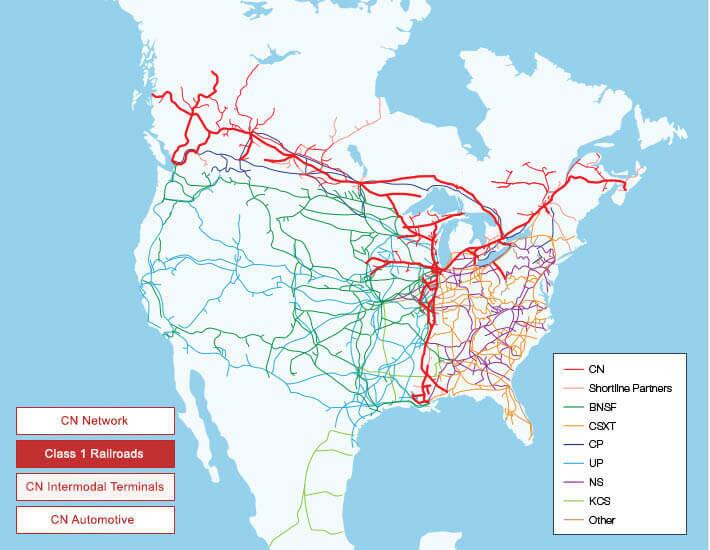Canadian Freight Rail Shuts Down As Labor Talks Collapse: Strike Declared, "Members Head To Picket Lines"
An unprecedented rail stoppage is underway after Canada's largest railroads, Canadian National and Canadian Pacific Kansas City, locked out more than 9,000 union rail employees at 12:01 a.m. Eastern Time on Thursday. Simultaneously, the union declared a strike, escalating fears that this rail disruption could wreak havoc across North America's complex supply chains.
"Canadian National has formally locked out employees represented by the Teamsters Canada Rail Conference (TCRC) as of Aug. 22 at 00:01 ET, after the union did not respond to another offer by CN in a final attempt to avoid a labor disruption," Canadian National wrote in an early AM press release.
Canadian National continued, "This offer improved wages and would have seen employees work less days in a month by aligning hours of service in the collective agreement with federally mandated rest provisions. The offer also proposed a pilot project for hourly rates and scheduled shifts on a portion of the network as CN continues to believe this is a better and more predictable framework for our employees," adding, "Without an agreement or binding arbitration, CN had no choice but to finalize a safe and orderly shutdown and proceed with a lockout."
Canadian Pacific Kansas City issued a similar press release, indicating it had "bargained in good faith, but despite our best efforts, it is clear that a negotiated outcome with the TCRC is not within reach."
After Thursday's deadline elapsed, TCRC wrote on X, "Members should now be manning the picket lines (0001 ET), and signs should indicate lockout/strike."
A prolonged labor action could severely disrupt Canada's complex rail network, sending shockwaves through the U.S. economy and potentially reigniting inflation.
Bloomberg noted, "As a result, some cargo has been rerouted to ports on the US west coast, which are already dealing with container volumes approaching pandemic records."
Brendan LaCerda, a senior economist with Moody's Analytics, wrote earlier this week that prolonged labor stoppages would disrupt supplies of grain, fertilizer, lumber, and steel, potentially raising food prices, construction materials, and autos.
"Significant two-way trade and deeply integrated supply chains between Canada and the United States mean that any significant rail disruption will jeopardize the livelihoods of workers across multiple industries on both sides of the border," U.S. Chamber of Commerce President Suzanne Clark wrote in a statement.
Earlier this week, Goldman's Jordan Alliger told clients, "While a longer strike duration period is a possibility, we think history makes the probability of a shorter strike period much more likely (i.e., less than a week and more likely a few days of work stoppage once strike occurs); that said, the ongoing phased network slowdowns, shipper diversions, potential for heightened supply chain congestion, and the inevitable time it will take for Canadian rails to fully reboot network operations will likely keep near-term performance muted."
Alliger said, "Using 2023's total trade value figure of ~$6.7tn as a base proxy (transborder + US-international) would imply ~$67bn-$134bn of annually disrupted trade, which would mean potential trade disruptions of ~$180mn-$370mn per day should Canadian rail strikes ensue."



No comments:
Post a Comment